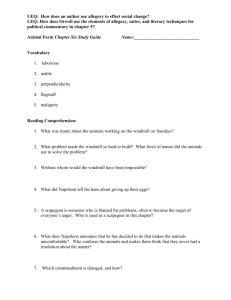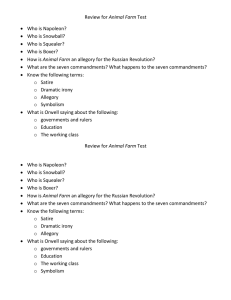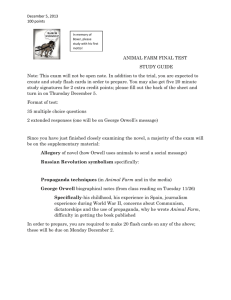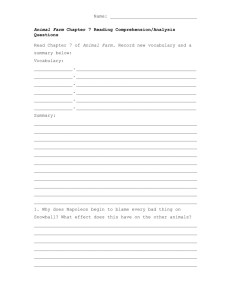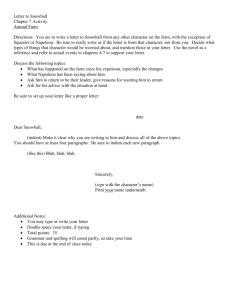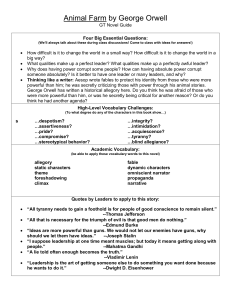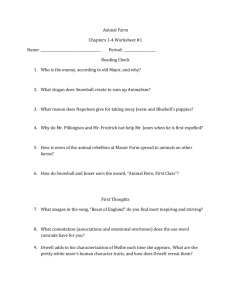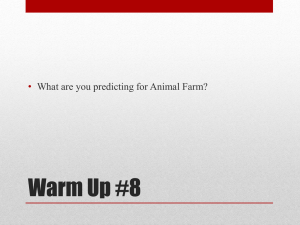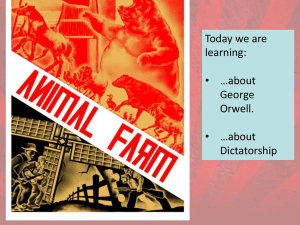AF Chapter 5 Study Guide
advertisement
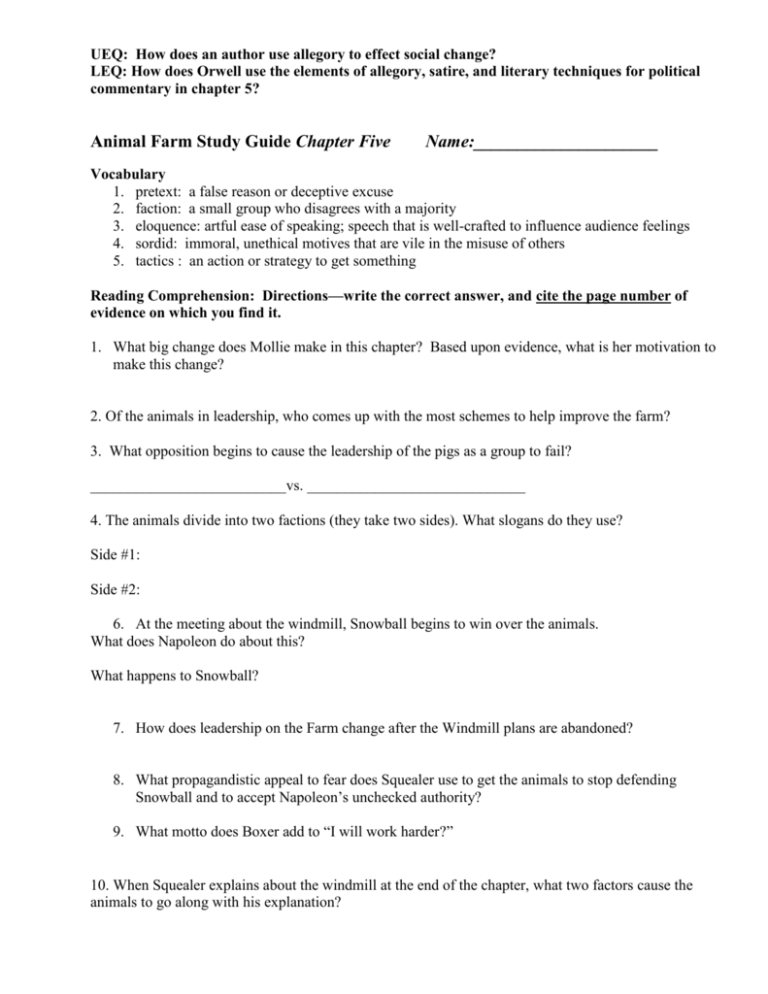
UEQ: How does an author use allegory to effect social change? LEQ: How does Orwell use the elements of allegory, satire, and literary techniques for political commentary in chapter 5? Animal Farm Study Guide Chapter Five Name:_____________________ Vocabulary 1. pretext: a false reason or deceptive excuse 2. faction: a small group who disagrees with a majority 3. eloquence: artful ease of speaking; speech that is well-crafted to influence audience feelings 4. sordid: immoral, unethical motives that are vile in the misuse of others 5. tactics : an action or strategy to get something Reading Comprehension: Directions—write the correct answer, and cite the page number of evidence on which you find it. 1. What big change does Mollie make in this chapter? Based upon evidence, what is her motivation to make this change? 2. Of the animals in leadership, who comes up with the most schemes to help improve the farm? 3. What opposition begins to cause the leadership of the pigs as a group to fail? __________________________vs. _____________________________ 4. The animals divide into two factions (they take two sides). What slogans do they use? Side #1: Side #2: 6. At the meeting about the windmill, Snowball begins to win over the animals. What does Napoleon do about this? What happens to Snowball? 7. How does leadership on the Farm change after the Windmill plans are abandoned? 8. What propagandistic appeal to fear does Squealer use to get the animals to stop defending Snowball and to accept Napoleon’s unchecked authority? 9. What motto does Boxer add to “I will work harder?” 10. When Squealer explains about the windmill at the end of the chapter, what two factors cause the animals to go along with his explanation? UEQ: How does an author use allegory to effect social change? LEQ: How does Orwell use the elements of allegory, satire, and literary techniques for political commentary in chapter 5? Literary Technique: 1. Find a simile related to the change in weather. Write it here and cite the page number. 2. Symbolic Characters—How are the nine grown puppies symbolic characters? They represent… 3. .Look again at the Seven Commandments. List them below. Circle the ones that you see being broken in some way in this chapter. Explain your evidence and cite it to support your choices. 1. 2. 3. 4. 5. 6. 7. How is the breaking of the 7 Commandments ironic? 4. Plot Development: What is the greatest change that takes place on Animal Farm (Utopia) in this chapter? How does this relate with Orwell’s allegorical meaning? 5. New type of Propaganda: Disinformation or Rewriting History Where do we see this in the chapter? Identifying Vocabulary Context Clues: Circle the “clues” that help you know what each term means. 1. It had come to be accepted that the pigs, who were manifestly cleverer than the other animals, should decide all questions of farm policy, though their decisions had to be ratified with a majority vote. 2. One day as Mollie strolled blithely into the yard, flirting her long tail and chewing a stalk of hay, Clover took her aside. 3. He had seemed to oppose the windmill, simply as a manoeuvre to get rid of Snowball, who was a dangerous character and bad influence.
